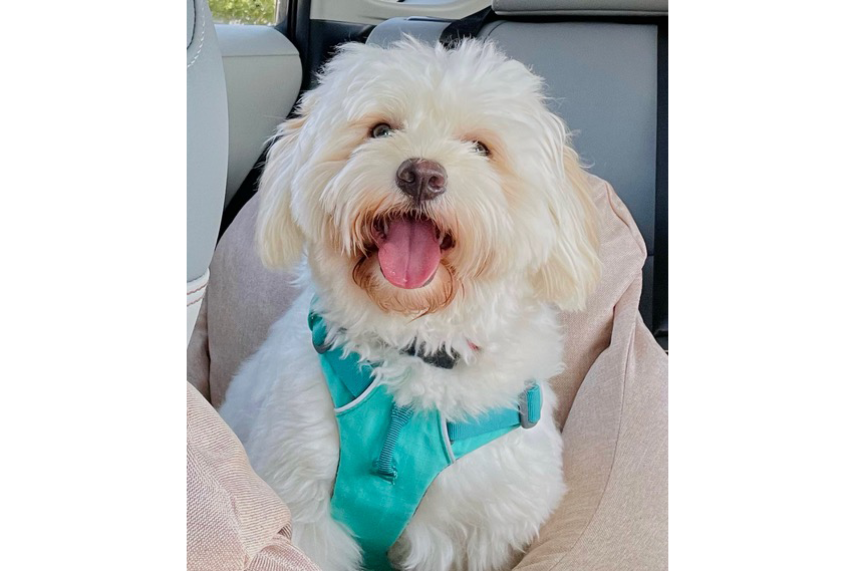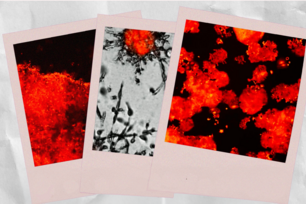
Sunny Das
Courtesy of Sunny Das
Meet a Whitehead Postdoc: Sunny Das
Sunny Das is a postdoc in Whitehead Institute Member Robert Weinberg’s lab studying how breast cancer metastasizes or spreads to other tissues. We sat down with Sunny to learn more about him and his experiences in and out of the lab.
What are you investigating?
I primarily work on breast cancer. The field has made a lot of strides in terms of treating many types of primary tumors – those in tissues where cancers originate. However, more than 90% of the cancer-related deaths that we see in the clinic are due to a phenomenon called metastasis: the spread of cancer cells from their site of origin to distant organs and their subsequent growth at these sites. For example, if one has cancer that originates in the breast, then those breast cancer cells could spread to the lymph nodes, bone, liver, lungs, and the brain, eventually leading to mortality. Currently, we do not have a very good understanding of all of the steps involved in the aforementioned ‘invasion-metastatic cascade’, the sequential processes that allow cancer cells to colonize distant tissues. That’s what I am trying to understand, so that we can develop effective anti-metastasis therapies. Specifically, I’m working on a subgroup of breast cancer, known as estrogen receptor positive breast cancer, and trying to understand the molecular mechanisms that dictate how these breast cancer cells colonize liver tissue, which is a common site of metastasis for this cancer in patients who have undergone a lot of endocrine therapies. I’m trying to understand why cells with a mutant estrogen receptor have this preference to colonize the liver and how to use that information to develop therapies to improve the quality of life of people living with metastatic breast cancer.
When did you become interested in a career in research?
I have had a very circuitous career trajectory. I had always been interested in biology. It’s fascinating to me that we've sent people to outer space and the moon, but there’s so much we still don’t know about what’s going on inside of our own cells, where thousands of processes are continually in motion, programmed almost to perfection. I got my bachelor's degree in chemistry, and then my master’s in genetics. I was not sure at that point what I really wanted to do, but then I had a personal situation, concerning my dad’s health, which meant I had to get a job to support my family. I took a 180-degree turn and worked in marketing and finance for about five years. I was managing a team of people selling and marketing health insurance and other financial products. After five years, my dad’s health got a little better, so I decided to pursue science again, as my corporate job was completely unrelated to my academic training. I started applying to PhD programs in the US, and since then I’ve enjoyed working in the lab!
Where do you see yourself in ten years?
I see myself heading a department or a division. I don't know whether I’ll be in academia or industry, but I want to be responsible for conceiving research strategies and seeing them from conception to execution for translational benefit. I want to be involved in overseeing how different departments or interdisciplinary teams can come together and execute an idea from scratch to become something that will eventually benefit patients directly.
Do you think the skills you gained working in the corporate world will benefit you in the career you envision?
I think that experience will be helpful because I know how to work under the pressure of deadlines and to meet specific targets. I definitely think that I would bring a different perspective on things, keeping an eye on the target while also having a firm grip on the science. Having had previous experience as a manager, albeit in a different setting, I like to organize things and bring people together to accomplish a goal. I have had the opportunity to mentor numerous students in graduate school and my postdoc, and I have loved it thoroughly. Whether I go into academia or industry, I definitely also see mentoring as a big part of my responsibilities.
Since your research goals are ultimately about improving patient care, do you ever collaborate with doctors or patients?
Yes, I’ve been setting up collaborations with a group of clinicians at the Dana Farber Cancer Institute and Brigham and Women's Hospital. A lot of the experiments that I’m doing are based on what we call preclinical (mouse) models. In order to validate that what we find has clinical relevance, i.e., mirrors what happens in patients, I have reached out to clinicians to get relevant biopsy samples from patients. Having data from both models helps better elucidate the mechanisms underlying breast cancer-to-liver metastasis, and also gives us confidence in what we think might be good therapeutic targets to go after. Also, just speaking with clinicians and patient advocates through these collaborations has given me new insights and perspective on the translational aspect of my research, because in the lab we are more focused on understanding the mechanistic details of cancer progression.
When you were a kid, what did you want to be when you grew up?
I wanted to be a singer at one point. In India, movies are a big influence and songs are an integral part of our movies, so we’ve grown up listening to those songs quite a bit. My dad also used to bring home a lot of LPs from bands like The Beatles, The Bee Gees, and ABBA when I was a kid, which gave me exposure to Western music. When I got a little older, I wanted to be a chef, because I really like cooking. I would say those two were my strongest inclinations when I was a kid.
Are cooking and singing still things you do today?
Yes, I like to do both, although I don't really sing publicly. Cooking is very relaxing for me and is almost meditative. I also feel it’s a lot like a research protocol or experiment in that it has defined instructions, but you can also tweak or optimize it to get better results. My favorite dish to make is biryani, which is a potpourri of well-seasoned rice and some sort of meat. It’s a dish a lot of Indians have grown up eating, and there are different versions of it depending on which part of India you are in. Making biryani is a very labor-intensive process, but I could eat it every day of my life if I did not have to worry about its adverse effects on my health!
What are your other hobbies?
I am a bit of a couch potato when I am home. I've always been very interested in pop culture, movies, and music, so I try to keep up with a lot of that, whether it's from back home in India, or here in the US. That’s how I spent a lot of my time at home, besides cooking. Also, my wife and I adopted a puppy around a year ago, and she has been the highlight of our lives since then. Her name is Jia; she’s half Havanese and half Kokoni, and she’s a sweetheart. She takes up a lot of our time.

Sunny's dog, Jia
Courtesy of Sunny Das
What do you do with your puppy?
We take her on walks and hikes. A couple of months ago, we actually took her on her first big car ride to Acadia and hiked there. She had a lot of fun. Also, we have a dog bar in our area, and from time to time we take her there, or we have playdates with our friends, who are also dog parents. Jia’s daycare recently had a Halloween costume party, so we dressed her up as ‘Aerobics Barbie’. There’s always something happening.
Do you collect anything?
My wife and I love traveling and when we go somewhere new, we usually end up buying fridge magnets or shot glasses as souvenirs from that place. Our refrigerator door now acts as a collection of these magnets, from places in India, around the US and parts of Europe. For example, we’ve been to a lot of the national parks in the US, and my favorite one until now has been Arches in Utah. Seeing those gigantic rock formations just standing by themselves was just crazy. We have a lot of places on our bucket list that we have yet to visit, and hopefully more magnets to add to our collection.
Topics
Contact
Communications and Public Affairs
Phone: 617-452-4630
Email: newsroom@wi.mit.edu


